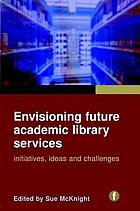Nov
From Lending to Learning – published
Filed Under (Built Learning Environments, General, Information Literacy, Professional practice, Research, Technology Reviews, VLE (Virtual Learning Environment)) by ronan on 29-11-2010
Tagged Under : From Lending to Learning
 Ahh – finally… my book which is now available – an extract from the opening pages:
Ahh – finally… my book which is now available – an extract from the opening pages:
“As I write this introduction a debate on BBC Radio 4 suggests that in order to effect public sector efficiency savings, volunteers should run public libraries along the lines of charity shops. There are regular announcements of this type in the media with yet more initiatives to change public libraries. To breathe new life into them, to put new energy into the service and to take new approaches that range from raising noise levels to the provision of coffee and chat facilities. At the heart of all such announcements lies a very important, yet simple, question: what are public libraries for?
Wander into any one of the hundreds of public libraries in the UK and you will see a range of services there that have evolved in a fairly haphazard way. This is not to say that there is poor quality of service, simply a lack of consistent strategy. One is tempted to ask some very obvious questions. Who looks after the public libraries of this country? Is the power to shape the future of public libraries in the hands of the central government, the regional assemblies, local authorities or made-up agencies, quangos, held together by the short-term thinking of hands-off politicians and civil servants? What are the reasons for keeping an institution such as the public library active over centuries – is it simply tradition? And, looking ahead, what might be the public library needs of our grandchildren?
In the chapters that follow I try to unravel the complexity and distil a logic that might offer a way to view the public library not simply as a national institution steeped in tradition, or as a purposeless place providing little more than popular glossy magazine titles, but as a learning space. Or, more correctly, a space owned by and dedicated to learners.”
Order this title now through your local public library – or buy it yourself, read it and send me your comments.
Rónán O’Beirne – From Lending to Learning – The development and extension of public libraries. 2010 Chandos Information Professional Series Chandos Publishing an imprint of Woodhead Publishing Ltd., Cambridge. ISBN 9781843343882. – 216 pages 234 x 156mm paperback £45.00 / US$75.00 / €55.00
 I have been reading an interesting collection edited by Sue McKnight called
I have been reading an interesting collection edited by Sue McKnight called 
